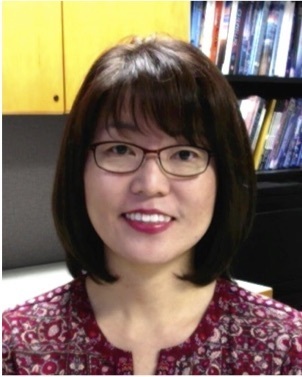"Materials Chemistry via Electrochemistry: Electrochemical Synthesis of Electrodes and Catalysts for Solar Energy Conversion, Biomass Conversion, and Desalination" by Kyoung-Shin Choi

Kyoung-Shin Choi is a professor in the Department of Chemistry at University of Wisconsin-Madison. Dr. Choi's research focuses on design, synthesis, and characterization of semiconducting and metallic crystals and thin film-type electrodes with controlled micro- and nano-structures for use in electrochemical and photoelectrochemical devices (e.g. photoelectrochemical cells, fuel cells, and rechargeable batteries, and sensors). This research combines disciplines of inorganic chemistry, solid state chemistry, electrochemistry, materials chemistry, and nano-scale science.
When electrochemical and photoelectrochemical devices contain polycrystalline electrodes or catalysts, variances of particle shapes, sizes, orientations, and interconnections significantly affect the chemical and physical factors that define the energetics and kinetics of these electrodes or catalysts. Therefore, controlling and understanding the effects of micro- and nano-structural features at the interface on functional properties are the keys to producing highly efficient, cost effective, and lightweight devices.
In order to accomplish these tasks the Choi group develops new electrochemical synthetic strategies that can make a significant advancement in constructing polycrystalline electrode materials. We achieve this by combining compositionally versatile electrodeposition methods with various new synthetic concepts/techniques that can allow for precise morphological control at various length scales (e.g. electrochemical interfacial supramolecular templating, controlled electrocrystallization). Since electrodeposition is based on a low-temperature solution-based method with many synthetic variables that can be precisely and freely controlled, our approach allows for the assembly of a broad range of inorganic electrodes with systematically varying micro- and nano-structural features (e.g. mesoporous films, nano- and micro-scale crystal engineering).
The functional properties we currently investigate in conjunction with morphological variation include optical, electrochemical, photoelectrochemical, and photo-/electro-catalytic properties. By pursuing an in-depth atomic level understanding of structure-property relationships as well as efficiency enhancement by interfacial engineering, we attempt to bridge the gap between chemistry and materials engineering.
Sponsored by the Department of Chemistry & Biochemistry